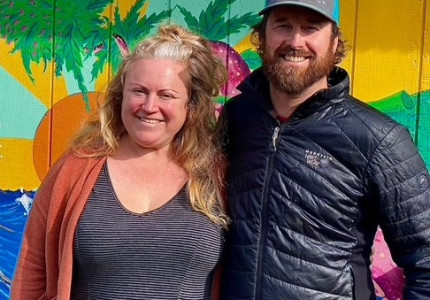The story of T. Rex Holdings begins thousands of miles and an ocean away from Mendocino County, in Great Britain.
“I’m a second-generation farmer,” explains Torre Stromberger. “My mother, Sula is from England. She left England in her early ‘20’s and drove through California in a school bus. She found herself in Big Sur, fell in love and bought a piece of property there with what little means she had. I was born and raised on that property.”
Torre grew up in Big Sur, but Sula also had land in Anderson Valley, where she grew cannabis under Proposition 215.
“She was a single mom trying to support the four of us. We ended up spending a lot of our childhood in Anderson Valley. Growing cannabis was always a part of our lives. I remember hauling dirt up those steep hills by hand.”
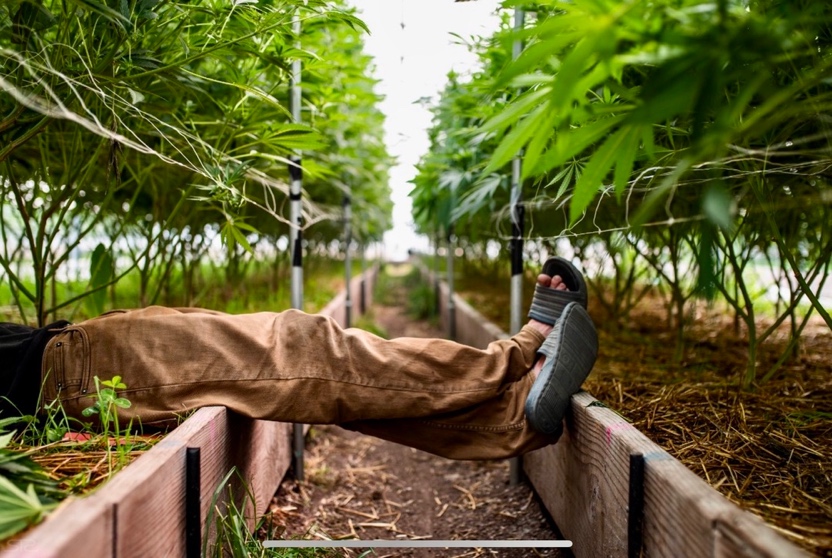 “Ironically, even though I smoked weed as a kid, I judged my mom for growing it. I wanted her to do something ‘normal.’” When I was 18 though, she asked if I wanted to grow my legal amount in the backyard. That was the beginning. Growing became something that consumed my life. It was and is all I talk about.”
“Ironically, even though I smoked weed as a kid, I judged my mom for growing it. I wanted her to do something ‘normal.’” When I was 18 though, she asked if I wanted to grow my legal amount in the backyard. That was the beginning. Growing became something that consumed my life. It was and is all I talk about.”
Sula decided Covelo was a better place to farm, and pre-legalization, she purchased property there.
“Mom saw the writing on the wall. The Navarro property would’ve been a nightmare to permit. At that time, I was doing Prop 215 farming in Monterey County. But the moratorium came around, and you could only grow in greenhouses in Salinas. I tried to get involvedocally, but quickly realized Monterey County was not interested in helping anyone without a seven-figure bank account.”
“By 2017, mom was phasing out of the business and asked if I wanted to take over. I agreed, took all my money and time and threw it into the farm. It’s been rough,” Torre smiles.
 Initially, Torre lived in Monterey, commuting to the farm and camping in a tent. “That was definitely not sustainable, so my wife and I packed up and moved to Willits."
Initially, Torre lived in Monterey, commuting to the farm and camping in a tent. “That was definitely not sustainable, so my wife and I packed up and moved to Willits."
Like every other legal farmer, Torre struggles with permitting.
“Initially, Mendocino County’s ordinance seemed pretty reasonable. As the years have gone by though it’s become evident that Mendocino’s cannabis program is a bit of a joke. Now we’ve lost our right to dry in our just-built barn. It was inspected and approved in 2017, but since we've had to reapply through the Portal -don’t get me started on that whole debacle- the cannabis program has now told us our setbacks are inadequate. We’ve tried to stay ahead of the ball and hired a third-party consultant to help us through the portal as well as all the state required CEQA stuff, but with the ever-changing goal posts the county sets, even our consultant struggles to stay on top of everything.”
Torre underscores the astronomical costs required to be a legal farmer.
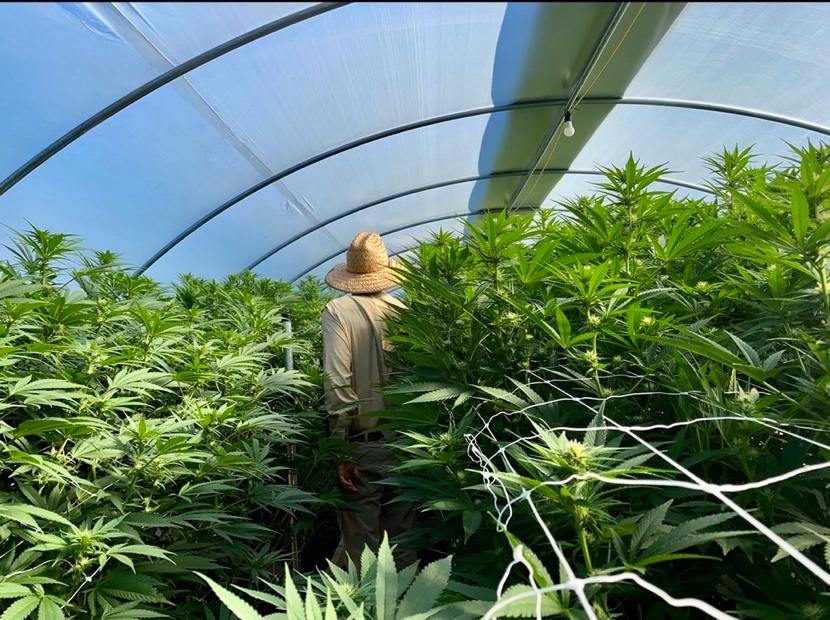 “Mom and I spent hundreds of thousands of dollars trying to be compliant and building infrastructure- doing everything we are physically and mentally capable of doing ourselves, while still not knowing if we have a license or not. Luckily, we had some money saved up. But if we’re struggling on flat ag land, how is it for the folks on the mountaintops that have been here for decades?”
“Mom and I spent hundreds of thousands of dollars trying to be compliant and building infrastructure- doing everything we are physically and mentally capable of doing ourselves, while still not knowing if we have a license or not. Luckily, we had some money saved up. But if we’re struggling on flat ag land, how is it for the folks on the mountaintops that have been here for decades?”
The family’s farming practices have always been as organic as possible. “For the past three years, we’ve been building up soil biology in our raised bed hoops which we get two rounds of light dep from. We use compost teas, cover crops and nutrient inputs that focus on soil food web. We spend more time than we probably should with the plants- training, pruning and making sure they have everything they need.”
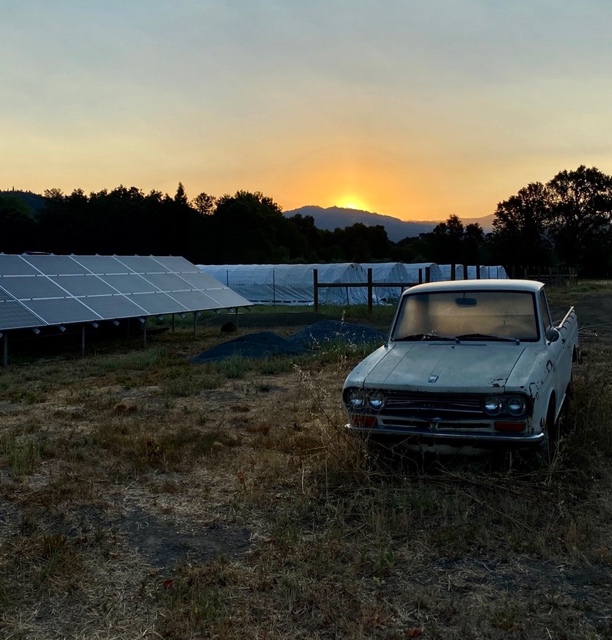 “ My farming style is to compromise as little as possible, to place quality over everything else while keeping an open mind to new processes and efficiencies. I like using data where possible while also trying to let the plant speak to me.”
“ My farming style is to compromise as little as possible, to place quality over everything else while keeping an open mind to new processes and efficiencies. I like using data where possible while also trying to let the plant speak to me.”
Torre is constantly trying to determine appropriate efficiencies for the farm, but not everything touted to save time or money guarantees quality flower.
“We cut costs by instituting automated feeding, which is hard with organics but has saved time. But then we tried machine trimming, and the results were horrible,” he smiles.
“I want our flower to check all the boxes- looks, smell, potency- which is why we selected Banana Punch for the Invitational. I wish we had our own genetics to submit, though. We have tons of old seeds I’d love to do pheno hunts on, but we struggle to find the time. Every side project is another thing to throw on top of the pile.”
Torre laments the lack of consumer understanding when it comes to high-grade cannabis.
“We need 10,000 plants per season from a reputable nursery. It’s a financial struggle to have that deposit ready at the right time for our preorder. Then we have to roll the dice on what genetics we run. Do we choose a proven strain that may not be quite as desirable? Or do we choose something new that will possibly be in high demand, but have no idea how they’ll react to our climate? I’m hopeful, though, that one day consumers will develop their own palate and realize it’s not all about bag appeal and potency. But until then, that's what I’ll do my best to deliver.”
Torre is acutely aware he has options that many farmers do not.
“I’m young enough to keep going. Our farm is not a family heirloom property. If we had to pull up stakes, we could, but so many people here cannot. This is where they built their lives. Everyone is just trying to keep their heads above water. That being said, if you're a farmer and you’ve stuck it out this long, you’re pretty strong-willed and resilient as hell. There’s always some crazy new trial and tribulation that’s going to test us. This is just a new wave of testing.”
“It’s been a battle and will most likely continue to be so, but we’re not giving up until the wheels fall off.”
T. Rex Holding’s Banana Punch is the farm’s entry in the Kure Mendocino Invitational.




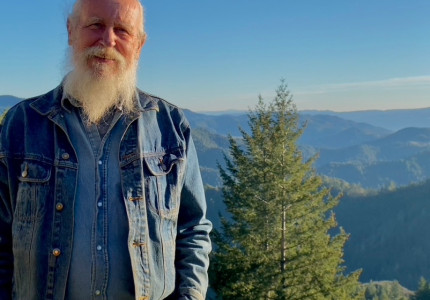
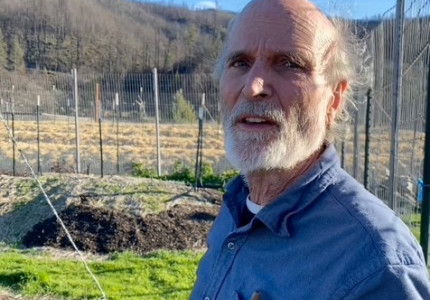
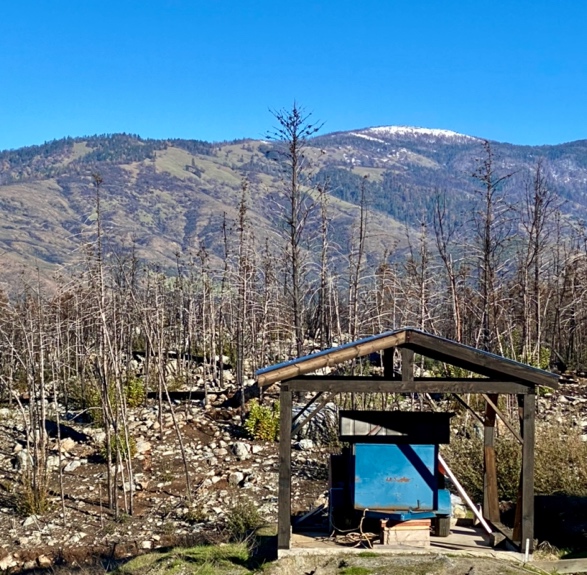 “I’ve only quit smoking three times since 1964,” he smiles.
“I’ve only quit smoking three times since 1964,” he smiles.